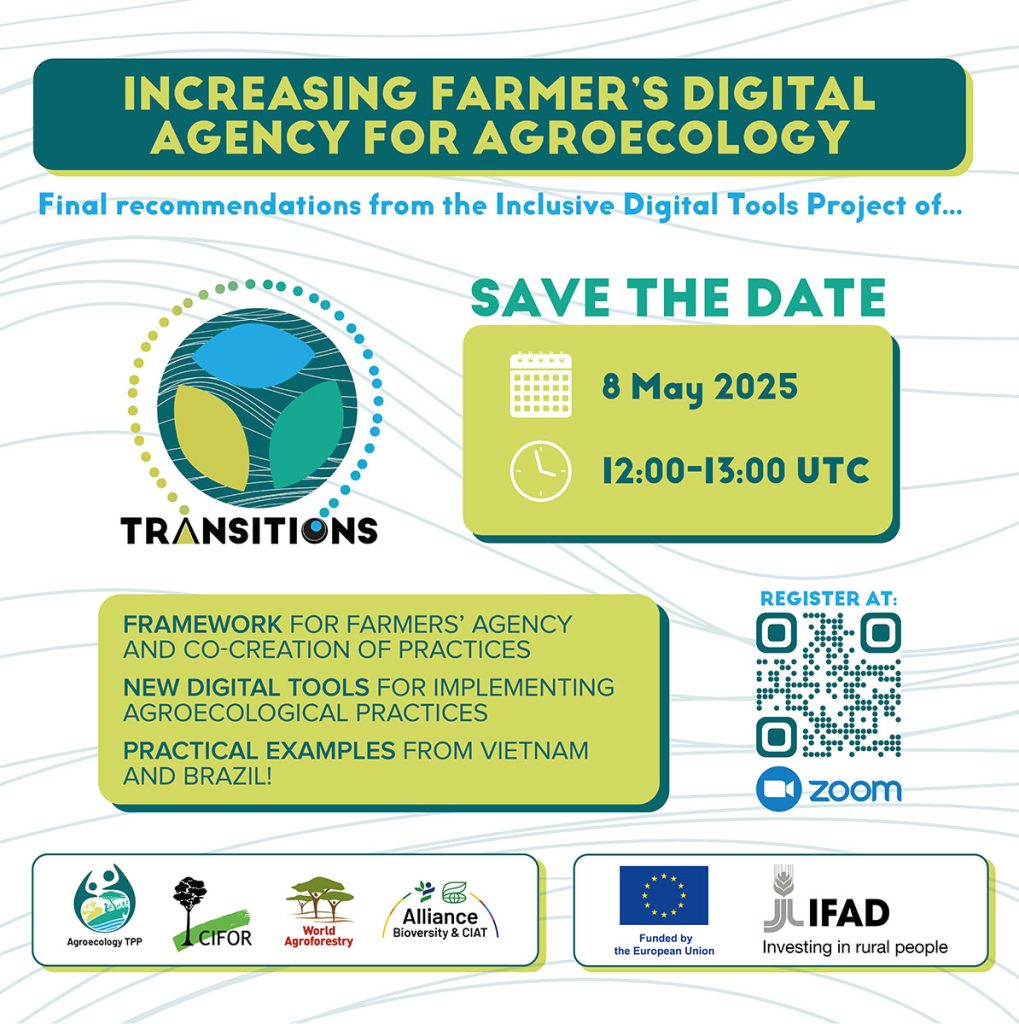
Agroecology promotes sustainable farming systems for not only productivity and ecosystem benefits, but also social inclusion values like co-creation, empowerment, and farmer agency. Social inclusion is not only a fundamental principle for agroecology but also for the application of digital tools in the agriculture sector. When used responsibly, digital technologies can empower and incentive smallholder farmers to innovate for agroecological practices at larger scales than would be possible through conventional technical assistance and performance assessment methods.
The purpose of this webinar is to share final recommendations and a framework for enhancing farmer agency in the use of digital tools and to promote inclusivity in farmers’ role in the co-creation of agricultural practices. The three-year, EU-IFAD funded Agroecological TRANSITIONS: Inclusive Digital Tools project will share its conclusions in this webinar with a presentation about farmer agency and co-creation of practices, followed by presentations of examples in Vietnam and Brazil, where the project developed new digital tools for implementing agroecological practices at scale and facilitated their implementation.


















